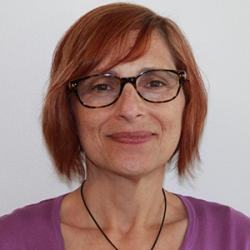Each year, tens of thousands of medical students use the Electronic Residency Application Service® (ERAS®) as they seek a coveted spot in a U.S. residency program.
The questions in that application have remained basically unchanged since the AAMC created it back in 1996. Until now.
As vying for a residency position has grown increasingly intense — a program with just a handful of slots may draw a thousand candidates — the AAMC is trying out a new approach to the application.
On Sept. 1, the association will release a new supplemental ERAS application, hoping to support a more equitable and effective residency application process.
The supplemental questions will launch on a trial basis in dermatology, general surgery, and internal medicine — three highly competitive specialties — and will be used in conjunction with the main application. Although participation in the supplemental application is optional, many candidates may choose to complete it in order to share more information about themselves.
While the main ERAS application is quite wide-ranging, the supplemental one hones in on a few key questions: What are your five most meaningful experiences? Have you overcome obstacles in your journey? Are you drawn to a particular geographic region? And do you want to indicate particular interest in certain programs?
“The supplemental application is meant to allow candidates to highlight who they are, to help programs identify candidates with interest in them, and to achieve better alignment between programs’ missions and applicants’ goals and experiences,” explains AAMC Chief Services Officer Gabrielle V. Campbell, MBA, LLM.
“Some people worry that this benefits students more than programs or programs more than students. None of that is true.”
Craig Brater, MD
President of the Alliance for Academic Internal Medicine
But the additional questions are unnerving some key players in the application process.
“With all the work and stress students face, I know a lot of people find the thought of a supplemental application a bit intense,” says Marianna Hernandez Brandi, a fourth-year student at the University of Cincinnati College of Medicine and an aspiring general surgeon. “As for me, it’s something else I want to do perfectly.”
Meanwhile, advisors are working to help students — and to do so expeditiously. The AAMC released preparation resources on Aug. 4, and candidates have until Sept. 30 to submit the supplemental application.
Still, the AAMC is confident they’ve created a valuable tool for both students and residency programs, noting that the supplemental questions were crafted with the input of more than 100 stakeholders, including representatives of schools, residents, and programs.
“Some people worry that this benefits students more than programs or programs more than students. None of that is true,” says Craig Brater, MD, a contributor to the supplemental application and president of the Alliance for Academic Internal Medicine. “My organization promotes the work of educators in medical schools and residency programs and cares deeply about medical students. So, clearly, we would not want anything that could be detrimental to anyone involved."
Below, AAMC experts and key stakeholders answer some crucial questions about the supplemental ERAS application.
How much extra work is involved?
AAMC guidance says that actually filling out the supplemental application should take less than an hour.
But students believe they’ll spend considerably more time than that crafting their answers.
“I’ll probably spend a few days on it, talking with advisors and peers,” notes Caitlin Brumfiel, a fourth-year student at Georgetown University School of Medicine applying to dermatology. “I want to give an accurate representation of who I am, what has shaped my path, and where I want to go as a physician.”
“This is a chance for programs to get a more holistic view of me. That’s a huge plus.”
Marianna Hernandez Brandi
Fourth-year student at the University of Cincinnati College of Medicine
Advisors say that they also are spending significant time figuring out how best to advise students around new features, like the option to indicate which programs most appeal to them.
“I appreciate that the AAMC has taken on helping to fix a broken system, but I am concerned for my students given the short timeline for this,” notes Angela Jackson, MD, associate dean for student affairs at Boston University School of Medicine.
To ease the process, the AAMC has created several resources, including webinars for applicants and advisors, a user’s guide, and FAQs. All — like the supplemental application itself — are free.
Some students feel hopeful that any extra work is worthwhile. “This is a chance for programs to get a more holistic view of me,” says Hernandez Brandi. “That’s a huge plus.”
What are “meaningful experiences” and “other impactful experiences”?
Candidates can spotlight up to five experiences that have significantly impacted their journey to residency. Then for each, they can explain in 300 characters or less — roughly three or four sentences — what made it meaningful.
“Currently, the activities section in ERAS is like a laundry list,” says Ilana Rosman, MD, dermatology residency director at Washington University School of Medicine in St. Louis. “So, we need a way to tease out which experiences are actually important to candidates.”
But revealing what’s closest to their hearts makes some applicants anxious. “If they can’t present themselves as everything to everyone, they worry about the possible effect on their chances at different programs,” Rosman notes.
Candidates can also describe what the application calls “other impactful experiences” — basically obstacles overcome. Examples include growing up in poverty, being a first-generation college student, or having limited educational opportunities.
As advisors prepare applicants to answer the experience-related questions, they emphasize authenticity. “You should identify which of your experiences you can speak about passionately and intelligently in an interview,” says Jackson.
Figuring out whether and how to answer the question about personal challenges can feel particularly thorny.
“I’ll tell students you don’t need to go into great detail about something like a divorce or a family member dying, but you might briefly note that it impacted your Step exam performance,” explains Marcy Verduin, MD, associate dean for students at the University of Central Florida College of Medicine in Orlando.
Is there a smart “preference signaling” strategy?
Residency hopefuls often apply to upward of 50 programs. With the supplemental application’s new “preference signaling” feature, they can convey strong interest to a much smaller group — three for dermatology and five each for general surgery, internal medicine (categorical), and internal medicine (preliminary) — as programs choose whom to select for interviews.
“We focused on this early stage because directors reported struggling to identify which applicants are genuinely interested in their programs when deciding whom to invite for interviews,” notes Dana Dunleavy, PhD, director of the AAMC’s admissions and selection research and development program.
Consider one example: At Boston’s Brigham and Women’s Hospital, the general surgery admissions committee must winnow some 1,200 applicants down to just 75 interviewees. Preference signaling should serve both programs and students, says Douglas Smink, MD, MPH, department vice chair for education. “This is really trying to help applicants stand out amid all the data we receive.”
But some students wish they could convey preferences further down the application road.
“Early on, you don’t necessarily know which programs you want,” notes Alana Carrasco, a fourth-year student at the University of Texas Southwestern Medical School in Dallas applying to general surgery. “I’ve heard that people sometimes realize in an interview that they actually dislike a program that they thought was high on their list.”
Meanwhile, students are strategizing about how to use their signals wisely.
Jackson shares her sense of how best to proceed: “For most students, I would say don’t use all your signals for reach programs, so you don’t waste them,” she says. “Also, make sure to signal a less competitive program, as they otherwise may not think you’re really interested in them — and to make sure you have a safety net.”
Where does geography fit?
Currently, programs try to search for signs that an applicant is seriously interested in settling in their region of the country for the next several years.
“Say a student always lived in Florida. It may look like they have no interest in a program in New York, but really, their significant other lives there,” notes Verduin. “I love that the new geographic section lets them clearly convey that.”
Applicants in internal medicine and dermatology can indicate interest in up to three out of nine geographic regions, from New England to the Pacific West. (Leaders in general surgery decided not to consider the geographic preference questions.)
An applicant willing to live anywhere is also free to choose that option, and there’s an opportunity to select “Do not wish to indicate.” Candidates can also weigh in on rural and urban settings.
As students tackle the geographic items, they plan to proceed carefully. “Let’s say a program in Idaho was thinking about interviewing you, but then they see you didn’t pick their region,” says Carrasco. “They may decide not to risk wasting an interview on you.”
One possible path is for students to review their favorite programs to see if they can batch them into three geographic regions, according to Jackson. “For many students, being able to signal three geographic areas is probably sufficient because that might cover a whole bunch of programs,” she notes. “Other students who can’t necessarily afford to limit themselves probably should signal ‘no geographic preference’ and make sure to explain why.”
What’s next?
After this application cycle, the AAMC will review the new application’s effects and determine how to proceed.
“We will continue to evolve these questions in the future based on outcomes,” says Campbell. "The whole point is to understand whether the questions add value, whether we need to refine them, or whether they’re great as is and we can expand them to other specialties.”
“The whole point is to understand whether the questions add value, whether we need to refine them, or whether they’re great as is.”
Gabrielle V. Campbell, MBA, LLM
AAMC chief services officer
Once the AAMC works through all that, the endgame is to integrate any useful questions directly into the main application and do away with the supplemental one. That won’t happen before 2023, though.
Meanwhile, Brater notes that the pilot’s big payoff could be for future generations.
“I certainly hope this helps this year,” he says. “But I also hope that this year’s cohort has the attitude that, as scholars and professionals, we have a responsibility to try to make things better for the people who come after us.”

